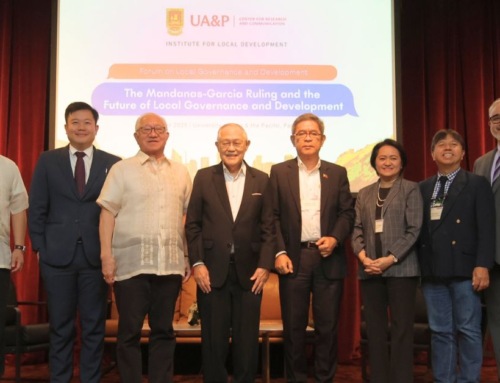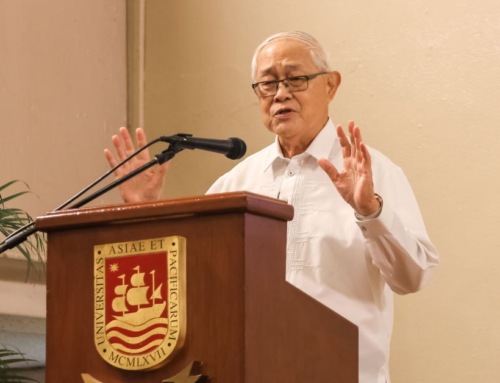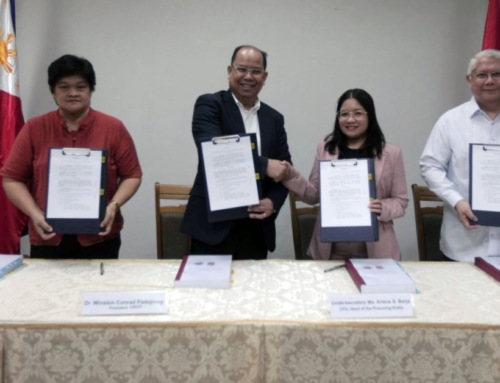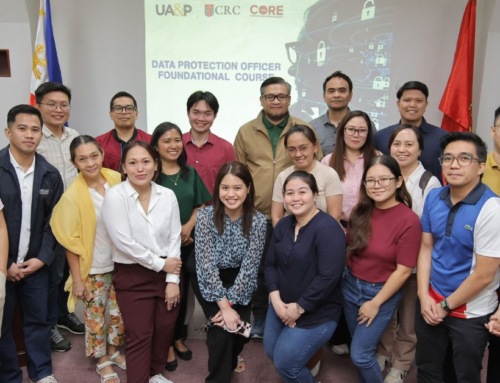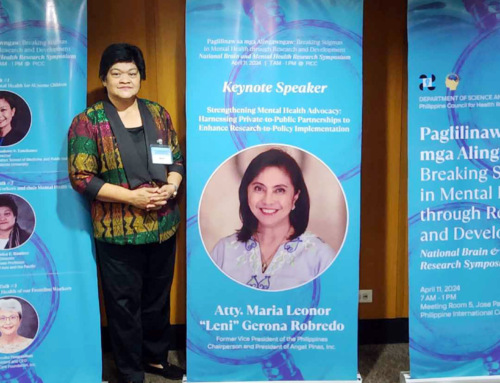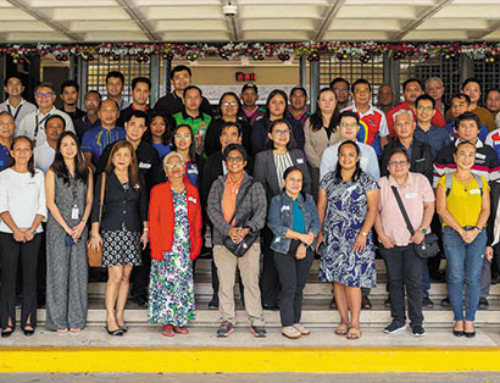This post was recovered from an article posted on 2014-06-09 03:44:00
Everyone desires lasting peace, stability, and development in Mindanao, but the ways to achieve these goals may prove to be a slow and uphill battle for all. This reality was markedly echoed in the roundtable discussion held at the University of Asia and the Pacific on May 29, when diplomats, lawmakers, and other legal minds threshed out the issues surrounding the Bangsamoro Framework Agreement signed between the government and the Moro Islamic Liberation Front. Led by the Philippine Ambassadors Foundation, Inc. (PAFI) and the Philippine Council for Foreign Relations (PCFR), selected speakers pointed out the serious implications of the signed agreement and proposed steps to make the peace process durable.
[Insert Photo: RTD on the Bangsamoro Framework Agreement. Photo by CRC.]
“The parameters of (the) peace process especially during the stage of peacekeeping and peace-building are and must be domestic. We must maintain ownership of the peace process,” Ambassador Lauro Baja, former undersecretary of the Department of Foreign Affairs, stressed. Tackling the political dimension of the agreement, he emphasized the need for the MILF leaders to “shepherd [the people along] the difficult steps and navigate the difficult peace process.” He also said, “One great achievement, I think, of the framework agreement, of the basic law, is the emergence of hope for peace. Hope trumps fear. Hope trumps distrust. Hope trumps apathy. Of course we support (the) Bangsamoro identity. Of course we are aware and understand their advocacies for justice…Of course we understand and support a Bangsamoro just as we do a Bangsa-Tagalog, a Bangsa-Bicol, a Bangsa-Ilocano, a Bangsa-Waray. But these Bangsa must exist within a Bangsa-Pilipino. There should be constant realization that we are one archipelagic state…” Ambassador Willy Gaa, former Philippine ambassador to the U.S., touched on the ministerial form of government called for by the agreement, the maintenance of peace and order, the annex on power sharing, and the displacement of a great number of people. “Is it not more proper perhaps to ask the people first through specific plebiscite, whether they want the Organic Act (ARMM) repealed before asking them whether they want to join a new entity (Bangsamoro)?” he asked. Citing the provinces in which the MILF has military presence and political influence, he remarked, “What source of mandate then do they have to represent the Muslims and indigenous peoples in Cotabato City, Sulu, Tawi-Tawi, Basilan, Zamboanga, and other cities? Especially in light of the fact that these units have already elected their own preferred leaders? Shouldn’t the MILF be conferred authority, if at all, only over areas where they are recognized and have political sway?” Dr. Jose V. Romero, Jr.From the economic viewpoint, Ambassador Jose Romero asserted how the framework agreement runs counter to world trends, where the push is toward integration and solidarity in order to take advantages of efficiency gains and economies of scale from trade creation. “Is this group trying to put a bamboo curtain in that part of Mindanao that will decouple or delink themselves from the mainstream of world commerce?” the former ambassador to Italy asked. Commenting on the agreement, he said, “Five pages and five annexes cannot produce an economic miracle that will suddenly increase dramatically levels of productivity, incomes, and employment in the poorest region of the country. Development is incremental, sequential, and gradual. There are stages of economic development. There is no shortcut to the process.” He further explained, “You’re talking about the least developed part in the country. We cannot allow that they cast themselves off, pull themselves out of their own boot straps, and see an economic miracle, despite assurances from sponsors [that the entity will flourish]. You need civil service, direct foreign investment, comprehensive development plan, entrepreneurs, technicians, economists, the lot. It is not that simple. Moreover, without development there will be no peace.” He also mentioned that with its Malaysian ties, the Bangsamoro will have the most formidable security force in the archipelago and the most powerful political party. This could be a mixed blessing—a blade that could cut both ways. Cong. Celso Lobregat, Zamboanga, 1st District Giving a view from the ground, Congressman Celso Lobregat of the first district of Zamboanga zeroed in on the most important points of the annexes. He stressed early in his talk that there was no provision affirming or recognizing the Philippine Constitution. Instead, there was a proposal to amend the Constitution to accommodate and entrench the agreement. “It is the reverse: instead of the dog wagging the tail, it’s the tail wagging the dog,” he quipped. The “opt-in anytime” provision of the agreement, which allows areas outside of the Bangsamoro to join the territory anytime, will, according to Rep. Lobregat, “create a scenario of constant conflict and tug-of-war between the Bangsamoro and the LGU outside the Bangsamoro, and will make for a creeping and never-ending Bangsamoro expansion. A classic case of gerrymandering.” Turning to the issue on territorial integrity, he mentioned that the government is practically giving the Bangsamoro not only land but sea, in relation to which he told the members of the peace panel, “When it comes to sharing, just make sure that whatever you agree to give to the Bangsamoro will be given to all the local government units. Be mindful that whatever you give to the Bangsamoro would be expected by the other rebel groups. Why should they ask for less when you are willing to give the Bangsamoro so much?” Another point he raised is the setting up of the armed forces of the new entity. “How can the Philippines have two armed forces?” he asked. “If you have two armed forces, how many commanders-in-chief will you have?” Ms. Amina Rasul, lead convenor of the Philippine Center for Islam and Democracy, and Atty. Jeremy Gatdula, Operations Committee Secretary of the School of Law and Governance (SLG) of UA&P, presented their reactions afterward. Rasul highlighted the need for all the stakeholders to be responsible in making the peace process effective and the peace agreement sustainable. She said that for the ministerial form of government to succeed and be viable, the Bangsamoro people need to have a strong political party system. “They must be mature enough to know that they are electing political parties, not personalities,” she added. Gatdula, on the other hand, stated that every country or people would have legitimate grievances. However, he said, since the Bangsamoro people took part in the elections, they can also consider themselves responsible for the hurts they claim. He also said that, inadvertently or not, the government has created a new state, since the elements of a state are all present in the agreement. “All the Bangsamoro have to do is to declare independence,” he ended.
Ambassador Rosalinda Tirona, who gave the synthesis of the RTD, indicated that there is a common desire for the peace process to succeed, but some issues need to be reviewed and studied in depth. She proposed that the framework agreement conform to the Philippine Constitution and the existing laws, call for democratic participation of Filipinos and consultations of stakeholders, observe equitable sharing, and include the issue of Sabah. She stated that Congress is bound not to the agreement but to the Constitution. The RTD was conducted in collaboration with the Center for Research and Communication and the SLG. Among those who participated in the open forum were former senator Santanina Rasul, HRH Prince Omar Kiram and Count Hep E.S. Martinez from the Royal Hashemite Sultanate of Sulu and Sabah, and Atty. Johaira Wahab from the Department of Foreign Affairs. Also present were student and youth leaders, members of civil society, and representatives from some embassies and the media.
Text by Liza Alvarado, CCO. Source: www.uap.asia

